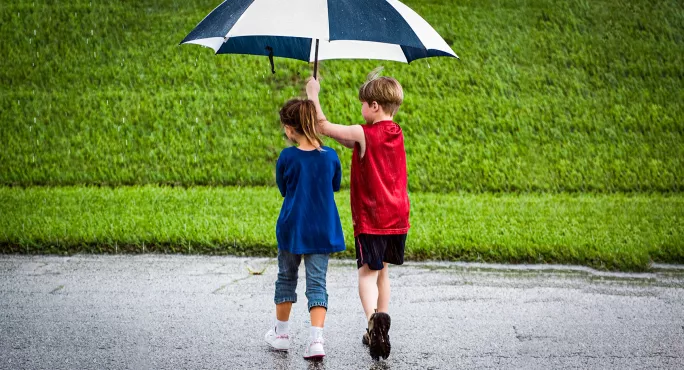Why kindness is fundamental to success in our classrooms

There is no profession quite like teaching to invite opinion from all walks of society. Most people have a view on what is right (and more often, what is wrong) with education.
Our young people have endured more in the past five years than some adults do in a lifetime. School can be a challenging place at the best of times. Throw in a global pandemic, austerity and the relentless slough of horrors of the world presented daily by news outlets and social media, and it is any wonder we face an emerging epidemic of youth mental health issues.
Teachers’ power ‘cannot be underestimated’
The power we hold as educators to have a positive impact on young people cannot be underestimated. We face a society of disengagement, disillusionment and depression. The time has come to put our practices under the microscope - to examine which need to be adapted, augmented or simply thrown out and replaced.
And the fundamental key to success in our classrooms is kindness: it must be a basic working principle.
- Long read: How to build a behaviour policy based on kindness
- Interview: Fostering a culture of kindness in schools
- News: School violence reduction ‘wishful thinking’ without extra money
We often have no idea about the difficulties our young people face. In the current climate, food and fuel poverty is much more widespread than many understand. Homes we might not consider to be “struggling” are finding it difficult to make ends meet; a choice between heating homes or eating is not uncommon.
Some young people are coming to school after a night’s sleep in cold, damp bedrooms without a warm meal. With this knowledge, their outrage or despair upon being questioned about their homework or revision can be better understood.
This despair often manifests itself in dysregulation and distress as a coping mechanism - but skilled practitioners are amazing at intuiting these often hidden anguishes.
Simple acts of kindness by school staff
I have so many wonderful colleagues who furnish their warm classrooms with hygiene essentials and food for young people to take when needed - restocked daily - alongside emotional safety. These seemingly simple acts of kindness and support will change the entire outlook of a young person’s day.
In order for anyone to succeed academically, nurture needs to be consistent throughout the school environment and embedded within the school ethos.
Consistency is our bedrock: we are always there. The theme of unconditional positive regard must be present in all that we do. We teach the lesson in the face of mistakes or things going wrong - we will always be there to nurture and support.
Behaviour and relationship policies ought to - need to - reflect the society we live in, because it’s circular. We receive the society we create.
Thankfully, we’ve graduated in our compassion. Gone are the bad old days when mental health was not up for discussion and was more commonly a source of shame.
But we are not yet experts. In collaboration with the University of Glasgow, the World Health Organisation revealed in a national report published in 2023 that a third of young people in Scotland reported anxiety, with higher levels among girls than boys, and over a third (35 per cent) were classified as having either low mood or risk of depression.
Young people report still feel a sense of shame and fear when discussing their mental health, and it is often their educators they approach when they feel overwhelmed or unhappy.
Fear of the school summer holidays
With the summer break around the corner, it is a time to reflect: does the behaviour we see in front of us stem from fear of the unknown of the next six weeks or more that stretch out before our kids? When the lifeline of routine and stability is removed, could many of our young people feel adrift without the regularity of school and the help of the staff who work there?
Our young people develop strong bonds with teachers and support staff. Often, the thought of that not being there, in the void created by summer, might have a huge impact on how they present. As educators - and fundamentally as human beings - we must be mindful to consider these questions with kindness; this is when they need us most.
Our empathy and understanding allow us to grasp the difficulties facing our students. We have the opportunity to ensure they feel loved and supported, understood and seen - rather than dismissed, alienated or punished.
Kindness cannot be seen as weakness but must be an appreciated and essential tool in our kit - to reach for in supporting our learners holistically and, in doing so, fostering their resilience.
As Seneca put it, “Wherever there is a human being there is an opportunity for kindness.”
Kimberley Roan McVeigh is a principal teacher of flexible learning in Scotland
For the latest Scottish education news, analysis and features delivered directly to your inbox, sign up to Tes magazine’s The Week in Scotland newsletter
Register with Tes and you can read two free articles every month plus you'll have access to our range of award-winning newsletters.



